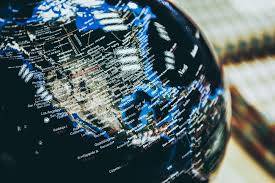1. Introduction
• Definition of geopolitical volatility and its significance.
• Brief overview of how geopolitical shifts affect global stability.
2. Root Causes of Geopolitical Volatility
• Economic factors (e.g., trade wars, economic sanctions).
• Political factors (e.g., regime changes, ideological conflicts).
• Social factors (e.g., demographic changes, social movements).
3. Case Studies of Recent Geopolitical Volatility
• Examples from different regions (e.g., Middle East, Asia-Pacific, Europe).
• Analysis of specific events and their impact on regional and global stability.
4. Key Players Shaping Geopolitical Dynamics
• Major global powers and their strategies (e.g., USA, China, Russia).
• Influence of regional powers and emerging economies.
5. Impacts of Geopolitical Volatility
• Economic implications (e.g., market instability, investment trends).
• Social consequences (e.g., migration flows, humanitarian crises).
• Security challenges (e.g., military conflicts, terrorism).
6. Strategies and Responses to Manage Geopolitical Volatility
• Role of international organizations (e.g., UN, NATO, WTO).
• Diplomatic efforts and conflict resolution mechanisms.
• Economic policies (e.g., sanctions, trade agreements).
7. Future Trends and Projections
• Emerging geopolitical issues (e.g., climate change, cyber warfare).
• Technological advancements and their impact on geopolitical dynamics.
8. Conclusion
• Summary of key insights.
• Reflection on the future outlook and potential scenarios.
Hold on tight because 2024 is inheriting geopolitical turbulence like never before. Ongoing regional conflicts in 2023 and escalating social demands fueled by factors such as the escalating cost of living and growing environmental concerns will test the resilience of international relations and challenge established norms, keeping you on the edge. This intertwining of political, social, and economic factors is set to define the narrative of 2024, demanding a nuanced and comprehensive approach to navigate the complexities of an increasingly volatile world.
China’s aggressive expansionism all point to one conclusion: the global system that emerged after World War II is giving way to a world without order. But while the upheaval is undeniable – and being compounded by a reshuffling of trade and investment flows, rapid technological advances, and profound demographic shifts – what will emerge from it remains an open question.
The coming transition could be illuminated or even accelerated by the outcome of key elections this year, when 4.2 billion people will be eligible to vote in 76 countries, making 2024 the biggest election year in history. Elections will be held in eight of the world’s ten most populous countries (Bangladesh, Brazil, India, Indonesia, Mexico, Pakistan, Russia, and the United States) – and the European Union.
This year’s raft of elections will serve as a gauge of the state of democracy globally. With autocracy on the rise, there is plenty of cause for concern. In fact, the new year kicked off with controversy-fueled elections in two democracies in the Global South: Bangladesh and Taiwan. In Bangladesh, the opposition boycotted the election altogether, calling it a sham, and as expected, Prime Minister Sheikh Hasina secured a fourth consecutive term in office.
Bangladesh is not the only country where elections this year will bring no surprises. Russian President Vladimir Putin will undoubtedly be “elected” to another term. Assuming he completes it, he will have surpassed Soviet leader Josef Stalin as the longest-servingRussian ruler since Catherine the Great. In Pakistan, the election result is practically a moot point, since the military will ultimately remain in control.
But even true democracies are at risk of a rightward lurch in upcoming elections, continuing a trend seen in Finland (a freshly minted NATO member) and, most recently, in Argentina. While Poland bucked this trend, the upcoming European Parliament elections – the first since Brexit – appear likely to prolong it.
Right-wing politics can tilt the scales from peace to war. Consider Israel: though the catalyst of the war in Gaza was the horrific terrorist attack carried out by Hamas on October 7, the hardline policies pursued by Israeli Prime Minister Binyamin Netanyahu’s far-right government – the most nationalist in Israel’s history – undeniably set the stage for conflict.




No comments yet
Be the first to share your thoughts!